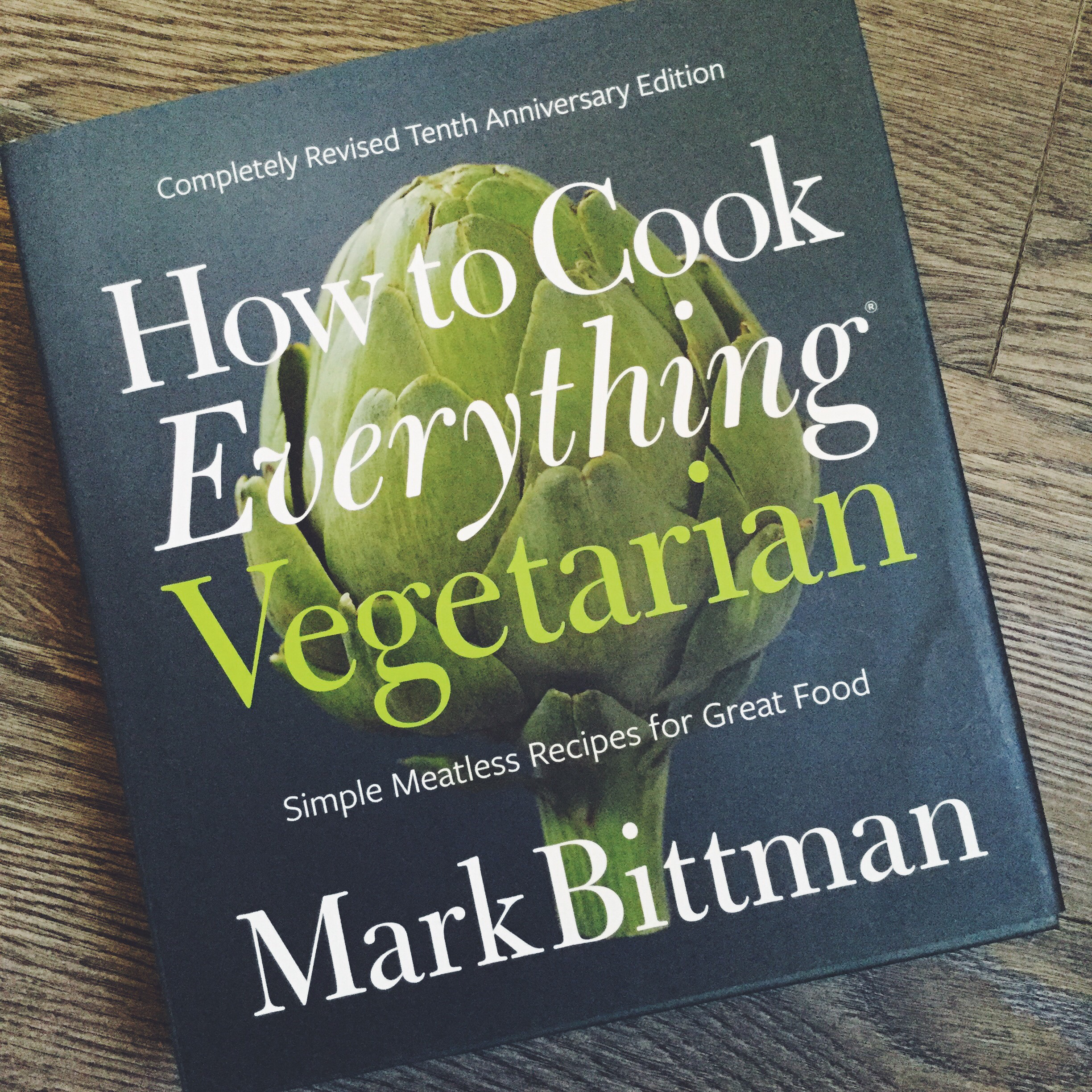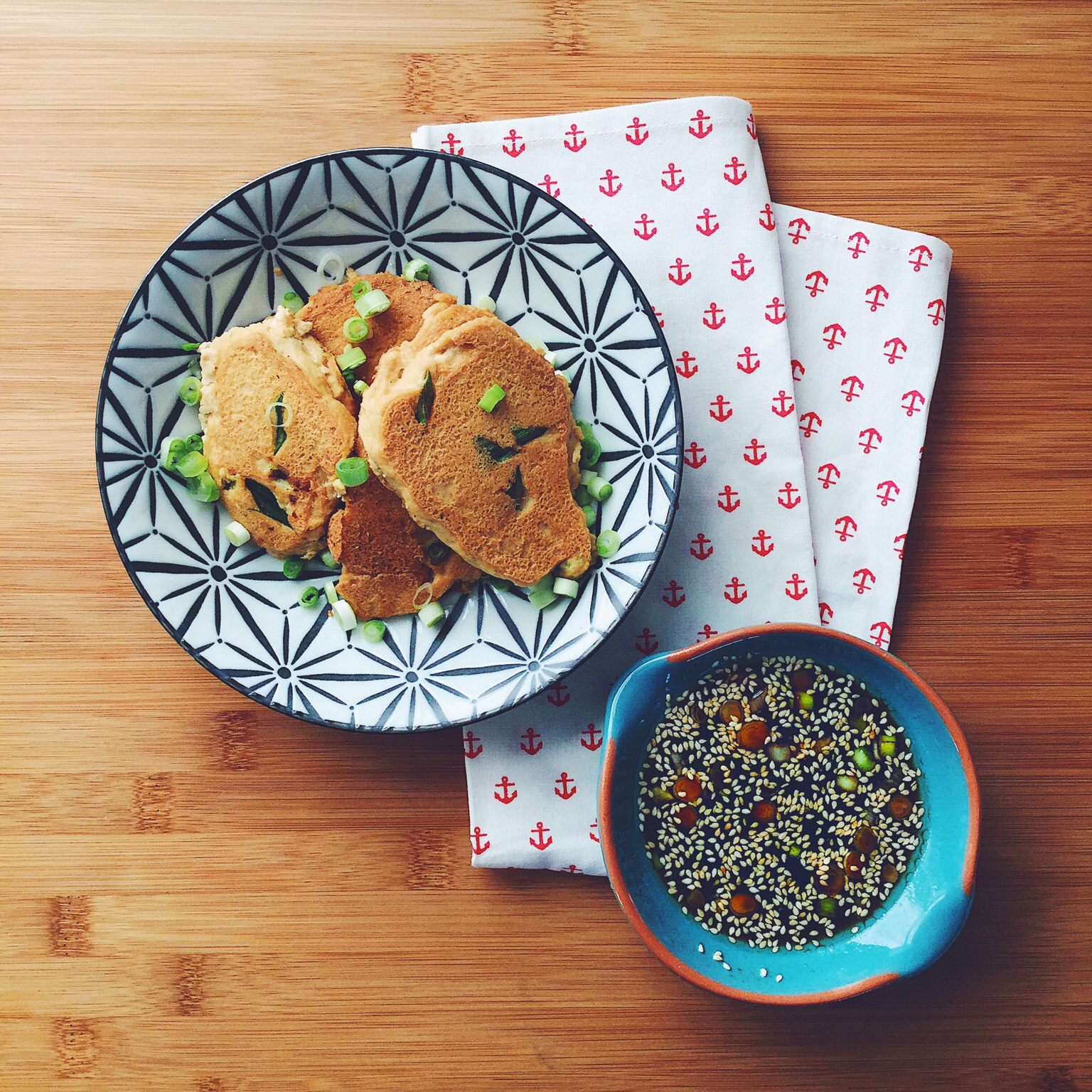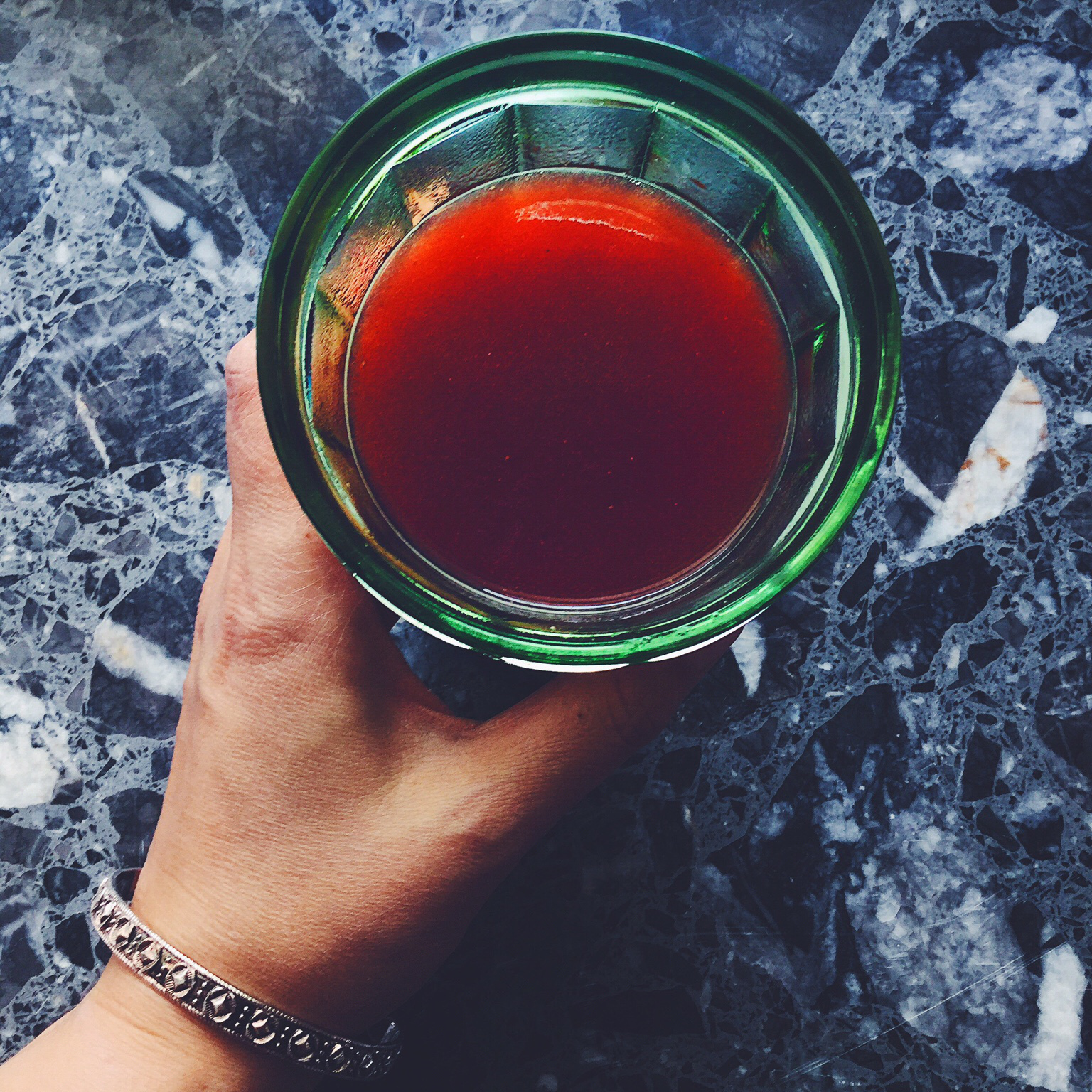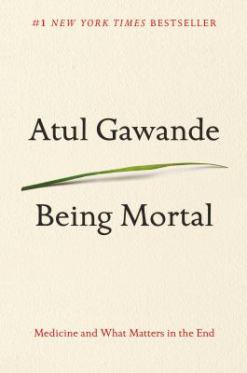
One of the cookbooks I have been quietly anticipating this year is the Completely Revised 10th Anniversary Edition of How to Cook Everything Vegetarian by Mark Bittman because when I received the original edition ten years ago I wasn’t a vegetarian and it seemed to me that I could really trust an author who wasn’t peddling vegetarianism (Bittman wasn’t or isn’t a vegetarian but he has ideas on what our modern diet has done to the health of the average American — have a listen to his TED talk if you’re curious). Back then I couldn’t have imagined or was even near ready to accept a plant-based diet. Not even close. But I loved my vegetarian husband and when my sister-in-law gave me a copy of HTCEV for Christmas in 2007 I knew I had found a happy middle-ground. (As an aside, I am from Alberta after all and as I have said here before the only thing I thought I knew about vegetarians was that they sprayed fur coats with paint, ate sprouts, and came from California. What did I know? I was a kid from the heart of “Cattle Country”.)
I rejoiced at finally having something that I could turn to to get ideas on how to make delicious vegetarian meals because my husband, bless his heart, although he had been vegetarian long before we met, he subsisted entirely on bagels, block cheese, tofu, and white rice. So can we really called that a vegetarian diet? Another discussion for another time but it was time to start adding vegetables into our idea of vegetarianism.
Fast-forward ten years and I’m a vegetarian now who spends much of my time thinking about cooking and about plant-based meals. Why is it plant-based and not vegetarian? I think part of the reason (I get this from Laura Wright at The First Mess) is that plant-based diets really focus on eating an abundance of vegetables/fruits, whereas vegetarian diets can (but not always) be mired heavily in dairy and eggs (and while neither is bad both imo should be eaten in moderation). This is where (if you read the new intro of HTCEV) version 2.0 differs from the original — more recipes focusing on plants and less of a reliance on dairy and eggs. This is not to say that HTCEV 2.0 is vegan (it’s not) but Bittman does point out that he’s not antidairy but loading up on dairy in place of meat probably isn’t a good health or environmental choice. So where this has a big effect is on the dessert chapter — more fruits and vegetables — with vegan and gluten-free options.
 Ginger-Scallion Tofu Pancakes (p. 499) w/ Korean-Style Soy & Sesame Dipping Sauce (p. 656)
Ginger-Scallion Tofu Pancakes (p. 499) w/ Korean-Style Soy & Sesame Dipping Sauce (p. 656)
Maybe even more exciting for vegans is the addition of more recipes for vegan breads (and it shouldn’t go without saying that Mark Bittman knows breads — his column in the NYT on the “no-knead” method of baking bread is the sole reason why I started baking bread in the first place). Baking tasty and top-quality vegan products can be a challenge so when I used his suggestions for vegan egg substitutes in the Lemon-Yogurt Scones I wanted to see how flexible these recipes could be. So using apple sauce mixed with baking powder (from the notes on Vegan Substitutes on page 15), along with DF coconut-based yogurt and chilled coconut oil I baked up vegan scones that were pretty incredible. Not too sweet, a tender crumb and a crisp crust — they were exactly how he describes a proper English scone should taste.
 Lemon-Yogurt Scones, p. 588
Lemon-Yogurt Scones, p. 588
HTCEV is one of those books that I feel like everyone has regardless if they are vegetarian or not. I think this is due to the fact that Bittman isn’t trying to teach people how to be vegetarian but, instead, how to cook wonderful meatless meals. Isn’t that what #MeatlessMonday is all about — promoting plant-based eating to meat-eaters? As soon as I started posting to Instagram that I’ve been trying out this new edition I’ve had so many comments and messages from people who loved the original and are excited for a revised edition. Not only are there great recipes but there’s a lot of information on techniques at the beginning of the book (either edition)– really useful for those who are trying to learn how to cook.
 Sweet Potato Gnocchi, p. 352
Sweet Potato Gnocchi, p. 352
Even though I have my HTCEV favourites (such as the braised lentils) for this review I chose new-to-me recipes in order to rediscover the magic of HTCEV all over again. For those of you who are new to HTCEV it is full of fresh, simple recipes that utilize easily sourced and purchased ingredients. The recipes range from very simple to more advanced (but not impossible) dishes. I find that the recipes are flexible too — ingredient substitutions work well and I think this book does a really good job of making it easy to start cooking (especially if you’ve never tried it).
Most of the recipes I’ve chosen are ones that are seemingly standard, dead-easy recipes — ones that are actually easy to get wrong — such as hummus, pesto, and handmade sweet potato gnocchi. Each of these turned out as they should — delicious! This is another reason why I’ve loved my original copy of HTCEV these past ten years — it’s the perfect reference. It really works as advertised and shows the home cook how to cook everything (or what’s truly worth knowing how to cook) vegetarian. When you can pick up a cookbook and find what you’re looking for then you know it’s a winner (I grew up using a 286 so I don’t feel the need to google endlessly in search of a recipe — that’s what a good cookbook is for).
 Crunchy Amaranth Griddlecakes, p. 404
Crunchy Amaranth Griddlecakes, p. 404
Two elements that are totally new to this anniversary edition are the absolutely gorgeous photos and the chapter on beverages. Quite a few of the recipes I chose to make (coincidentally perhaps?) had a corresponding picture — like this Watermelon-Mint Agua Fresca. While the photo below is mine, the one in the book shows-off a beautiful grouping of agua frescas. What a way to entice a cook! Alluring images of delicious recipes! As with all of my reviews, if you’re curious to see what I’ve been cooking up, check out my custom hashtag #eatworthyeverything or my dedicated Facebook post here. I’ll be adding photos to both as I try more recipes.
That first edition came into my life as a young, newlywed looking to become better at cooking vegetarian dishes and now this newest edition has come to me as a new mom introducing plant-based cuisine to my new little eater. How to Cook Everything Vegetarian is one of those classics that I don’t think will ever go out of style but has definitely benefited from a good revision. A great addition to any growing cookbook library (and if you only have one cookbook, let it be this one!)
 Watermelon-Mint Agua Fresca, p. 751
Watermelon-Mint Agua Fresca, p. 751
I would like to take this opportunity to thank Houghton Mifflin Harcourt and Raincoast Books for providing me with a free, review copy of this book. I did not receive monetary compensation for my post, and all thoughts and opinions expressed are my own.
Advertisements Share this:



![IMG_7415[1]](/ai/081/134/81134.jpg)
